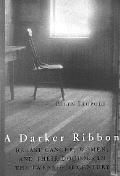If heaven send no supplies,
The fairest blossom of the garden dies.
—William Browne of Tavistock
As any gardener knows, a garden is an unnatural thing that cannot live without regular infusions of labor and supplies. If you don’t have time to spend, forget it. But if you’re creative, you don’t need much cash to make a lovely garden. Here are a few secrets of frugal gardening:
Scrounge. You can salvage plants legally from development sites and along roads slated for widening. I have friends who are devoted to liberating doomed plants, and they’ve saved apple and pear trees, raspberries, mature grapevines, and other valuable perennials from the bulldozer. The Master Gardener Program Web site (gardening.wsu.edu) offers detailed instructions (including some ecological and legal points to consider) on how to salvage plants, cuttings, and seeds. It also has a database to help you identify plants you find in the wild. In general, you need permission from landowners before you can salvage plants. You can also salvage from properties under development if you get permission. In Seattle, you can learn about a property under development (if you know the address) by checking the city’s Permit Tracking System database (www.pan.ci.seattle.wa.us/dclu/).
Forget palm trees. In general, native plants are less fussy and cheaper to care for and they’re pretty: Red-flowering currant, Pacific dogwood, salal, orange honeysuckle, Nootka rose, and yellow and blue violets are among the many Northwest natives popular in gardens around the world—why not here, too? The Washington Native Plant Society (323-3336) has helpful information and an annual plant sale in early spring. Cascade Biomes (322-0528) is another native-plant organization with an annual plant sale. But the best deal on native plants is probably the King Conservation District’s annual sale, where you can buy bare-root native trees and shrubs for $1 each. Orders for the 2000 sale will be taken in January. Call 764-3410 for details.
Bone up. A little knowledge can prevent many expensive mistakes. The WSU Cooperative Extension Master Gardener program offers free workshops, seeds, and volunteer Master Gardeners to help solve gardening problems. Call the Master Gardener hot line at 296-3440. They also offer an Urban Food Gardeners program: call Sally Anne Sadler for info at 205-6386. The Seattle Tilth Association (633-0451) offers low-cost and free workshops. Among other things, they can teach you how to cut pesticides out of your budget. Tilth’s month-by-month Maritime Northwest Gardening Guide ($10) offers detailed advice on what to do when and how.
Save your seeds. If you grow vegetables or other annuals, you don’t have to keep buying seeds or plant starts every spring. Seattle Tilth offers an annual workshop on seed-saving. Hint: It may not work if you use hybrid plants, such as store-bought fruits and vegetables. Buy open-pollinated seed the first year and save your seeds thereafter.
You’re not PC, you’re a cheapskate. If it bothers you to be virtuous, don’t think of it as recycling and conservation—call it stinginess. Why buy pricey, toxic, water-fouling fertilizers when you can make your own compost for nothing? There’s a 12-month Compost Hot Line to call if it’s not cooking properly: 633-0224. Or borrow a truck and haul a $15.95 cubic yard (about 1,200 lb.) of rich Cedar Grove compost, made from recycled Seattle yard waste (call 877-SOILS-4U). Seattle Tilth offers another piece of advice: Water at night, when you won’t lose as much to evaporation.
Shop around. There are so many annual plant sales and specialty nurseries in the Puget Sound area that they can’t all be listed here. Again, the Master Gardener Web site (gardening.wsu.edu) is worth visiting for its searchable database of specialty nurseries in Western Washington and links to gardening organizations that offer plant sales.





